Books, Edited Works by Peter Milne
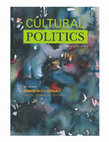
Cultural Politics, 2013
Art returned continually throughout Lyotard’s thought, operating as a major touchstone for his th... more Art returned continually throughout Lyotard’s thought, operating as a major touchstone for his thinking on everything from epistemology to politics. This special issue of Cultural Politics presents a series of original essays on Lyotard’s “aesthetics” in areas that have yet to receive serious scholarly attention, including discussions of Lyotard’s early “figural aesthetics,” an essay on Lyotard’s little-known work, Pacific Wall, and two papers on Lyotard and music. In addition, this issue includes two previously-untranslated works by Lyotard himself: the important article from the Encyclopédia Philosophique Universelle, “Argumentation and Presentation: the Crisis of Foundations,” and the interview with Bernard Marcadé, “What to Paint?,” given at the time of the publication of the book of that name. The issue also includes a commentary by Geoffrey Bennington, review articles by Keith Crome and Julie Gaillard, and artworks by Leon Phillips.
Leuven University Press, 2010
Jean-François Lyotard, Écrits sur l'art contemporain et les artistes/Writings on Contemporary Art... more Jean-François Lyotard, Écrits sur l'art contemporain et les artistes/Writings on Contemporary Art and Artists, Volume II.
Leuven University Press, 2010
Jean-François Lyotard, Écrits sur l'art contemporain et les artistes/Writings on Contemporary Art... more Jean-François Lyotard, Écrits sur l'art contemporain et les artistes/Writings on Contemporary Art and Artists, Volume III.
Jean-François Lyotard, Écrits sur l'art contemporain et les artistes/Writings on Contemporary Art... more Jean-François Lyotard, Écrits sur l'art contemporain et les artistes/Writings on Contemporary Art and Artists, Volume IVa.
Leuven University Press, 2012
Jean-François Lyotard, Écrits sur l'art contemporain et les artistes/Writings on Contemporary Art... more Jean-François Lyotard, Écrits sur l'art contemporain et les artistes/Writings on Contemporary Art and Artists, Volume IVb.
Leuven University Press, 2012
Jean-François Lyotard, Écrits sur l'art contemporain et les artistes/Writings on Contemporary Art... more Jean-François Lyotard, Écrits sur l'art contemporain et les artistes/Writings on Contemporary Art and Artists, Volume V.
Leuven University Press, 2013
Jean-François Lyotard, Écrits sur l'art contemporain et les artistes/Writings on Contemporary Art... more Jean-François Lyotard, Écrits sur l'art contemporain et les artistes/Writings on Contemporary Art and Artists, Volume VI
Introductions, Texts in Summary by Peter Milne
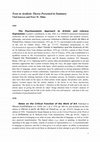
re-published in a modified version as The Psychoanalytic Approach to Artistic and Literary Expres... more re-published in a modified version as The Psychoanalytic Approach to Artistic and Literary Expression in Toward the Postmodern, ed. R. Harvey and M. Roberts (Amherst, NY, Humanity Books, 1993, pp. 2-11). Opposing itself to various other psychoanalytic approaches to art and literature (approaches that Lyotard criticises along the way), the paper argues that because artistic and literary works are laden with figure, which operates according to a different logic than that of language, artistic expression must be understood as having properties different from those of spoken or written commentary. Expression is thus set off from meaning, and is shown to reveal a very specific kind of truth: the trace of the primary process, free for the moment from the ordering functions of the secondary process. Its formative operations not only leave their mark on the space in which artistic works appear, but produce new, plastic, figures. Lyotard argues that the artistic impulse is the desire to see these unconscious operations, "the desire to see the desire." Attention to this function of truth and to the role of artistic space in giving the artwork its "play" brings attention back to Freud's analysis of expression in tragedy and its link to the results of his own self-analysis -and thus to the very constitution of psychoanalysis itself.
Papers by Peter Milne
Korean Journal of Philosophy, 2019

Trans-Humanities Journal, 2014
Abstract: This essay takes as its point of departure a little known text by Jean-François Lyotard... more Abstract: This essay takes as its point of departure a little known text by Jean-François Lyotard on art and its relation to global networks of telecommunication in order to explore the possibilities for social and political communities in the context of global capital. Borrowing Heidegger’s notion of an “enframing” (Gestell) of nature by technology, Lyotard inquires into a similar enframing of art, arguing that art, through the very fact that it is an unprogrammable kind of techne, has the power to “suspend” the programs of what he calls “capitalist technoscience,” and in so doing works against the loss of originality such programs produce. Linking this to Lyotard’s famous discussion of the avant-garde, I examine the potential political force of such a suspension or “epoche,” particularly with regard to the formation of possible publics in the absence of world historical “grand narratives” that would situate a universal human subject within a particular conception of historical progress. Lyotard argues that the Idea (in the Kantian sense) of totality no longer unproblematically provides the horizon for political thought. Any such cosmopolitan community is therefore problematic, communities can only be formed in the absence of necessarily shared qualities or traits. They must therefore be “promethean” in the sense of being creative, daring, and open to reinterpretation. Not only is this not something to be lamented, however, it is something that should be affirmed for the open possibilities it offers.
Cultural Politics an International Journal, 2013
Journal of the British Society for Phenomenology
Acinemas: Lyotard's Philosophy of Film, 2017
Chapter 10 of Acinemas: Lyotard's Philosophy of Film, ed. Jones and Woodward, Edinburgh Universit... more Chapter 10 of Acinemas: Lyotard's Philosophy of Film, ed. Jones and Woodward, Edinburgh University Press, 2017.
Using Lyotard's reading of the most explicitly political invocation of the Kantian sublime in Ent... more Using Lyotard's reading of the most explicitly political invocation of the Kantian sublime in Enthusiasm, this paper examines the possibility that the affect comes to provide a link or perhaps a “passage,” in the "later" Lyotard, between the otherwise heterogeneous realms of aesthetics and politics.
Playing on various notions of the "critical," this paper examines Lyotard's reading of the Kantia... more Playing on various notions of the "critical," this paper examines Lyotard's reading of the Kantian sublime, particularly with regard to what might be called its "political" implications. Tracing, through certain passages in the Lessons on the Analytic of the Sublime, the link between the sublime and what is called "trauma" in Freud, I draw some analogies to what a much "earlier" Lyotard calls the "critical function" of the work of art in order to respond, in part, to the criticisms of Jacques Rancière, among others, to the effect that the sublime marks a turning away from politics in Lyotard.
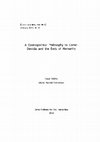
Trans-Humanities, 2012
Although Derrida is often taken to be “anti-humanist,” this paper argues that his engagement with... more Although Derrida is often taken to be “anti-humanist,” this paper argues that his engagement with the legacy of humanism is not only much more complex, but that it retains and alters this legacy in such a way as to provide a new way of thinking about the human in a trans-national or “global” context. This argument is at the same time an occasion to briefly explore some of the implications of this for Derrida’s relation to philosophy as a humanistic discipline. It first tracks some of Derrida’s most explicit discussions of humanism over the course of several works and lines of inquiry, showing what I take to be a shift in his work from the critical stance of “The Ends of Man” to the more nuanced discussions in some of the later “political” writings. My main goal is to link Derrida’s discussions of humanism to his work on cosmopolitanism and particularly to his argument that political thinking must negotiate the troubling but important legacy of a philosophical universalism that is nonetheless tied to a very particular cultural and historical past. I take this problem to be analogous to the ambiguity of a humanist legacy that is potentially violent and limiting in its conception of universal humanity while being at the same time what underwrites important political concepts such as human rights. Derrida argues that philosophy is the “other way” and is thus always open to redirection and reappropriation by traditions other than its own. Taking the “human” as an Idea in the Kantian sense, I argue that it too can wander from its end, liberate itself from the strictures of universal humanity while nonetheless retaining the promise and the political consideration due that humanity. Derrida thus offers an innovative way to rethink the humanist legacy in the context of a plurality of cultures. I end by suggesting that philosophy and the humanities more generally, far from being irrelevant, may thus be more relevant than ever.
Symposium: Canadian Journal of Continental Philosophy, 2011
This paper responds to Rancière's criticisms of Lyotard's turn to the sublime by attempting to ar... more This paper responds to Rancière's criticisms of Lyotard's turn to the sublime by attempting to articulate what Lyotard would call a " differend " between the two. Sketching out some of Rancière's claims, I show that Lyotard's reading of the Kantian sublime is more defensible than Rancière claims, providing an alternative reading that attempts to free Lyotard's sublime from Rancière's accusation that it signals nothing more than the mind's perpetual enslavement to the law of the Other. Approaching the sublime through the figure of the " event, " I suggest that it may even have certain affinities with what Rancière calls " politics. "

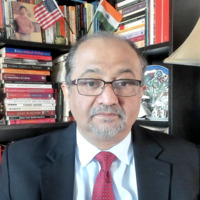

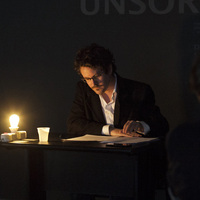




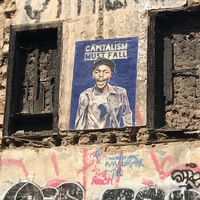

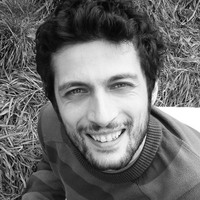
Uploads
Books, Edited Works by Peter Milne
Introductions, Texts in Summary by Peter Milne
Papers by Peter Milne